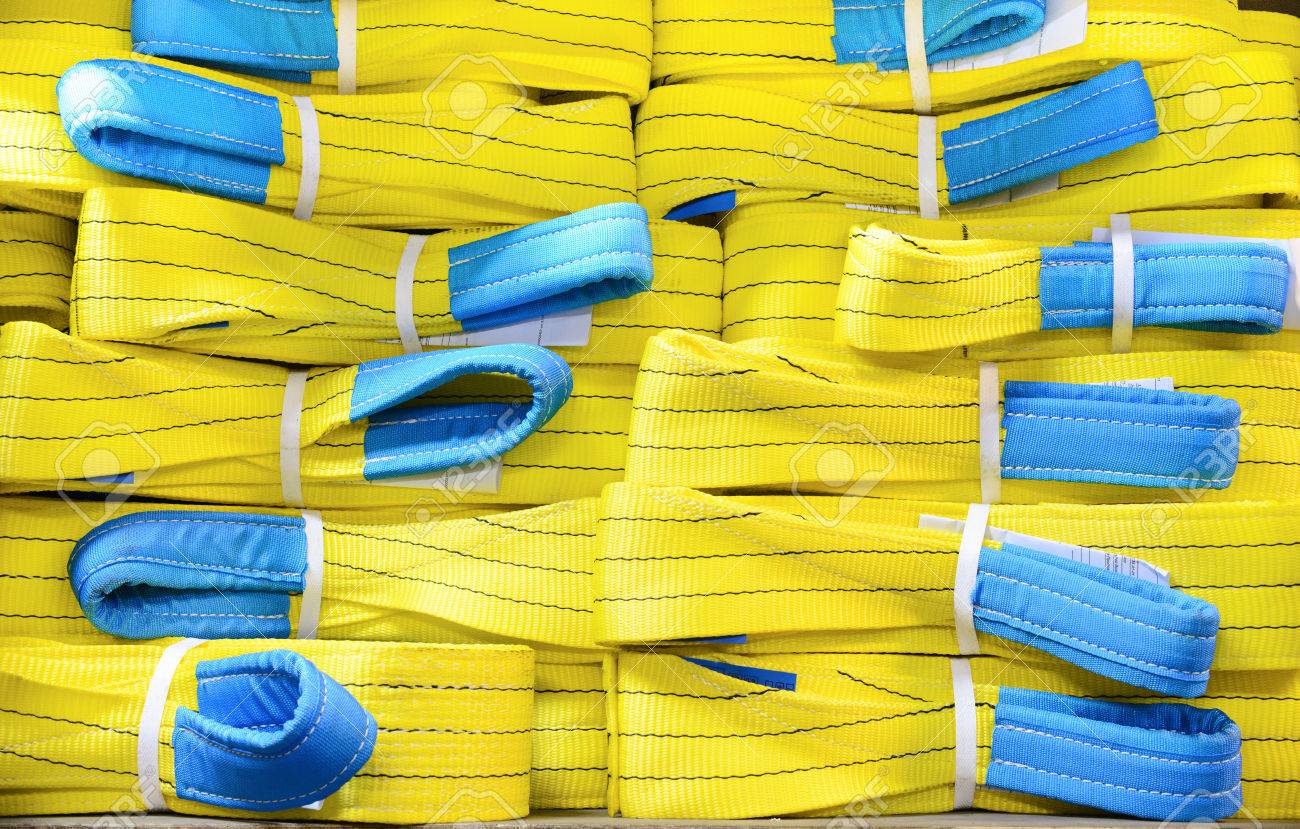Selecting a new sling for your heavy lift equipment is a process with many considerations. It’s no minor decision, especially since the variation between each type of sling can make great differences in your ability to lift various loads. With this knowledge in mind, it’s important to explore the options available in depth. This article will be devoted to one family of slings, the Nylon Lifting Slings . By the end of this piece, you should have a good idea of what makes nylon lifting slings unique and which circumstances they are ideal for.
The first step to understanding nylon lifting slings is to understand their unique construction. Nylon is a synthetic plastic fiber that, through careful manufacturing, can be shaped into a number of different useful forms. For use in slings, nylon is made in strands which are then woven together into thin plies of webbing which are both soft and surprisingly strong. Nylon slings can be produced with multiple plies of nylon webbing in order to reinforce the strength of the sling, though many slings are strong enough to lift many loads with just single-ply nylon webbing.
Nylon’s strength comes from its unique chemical composition, which was discovered by DuPont shortly before World War II. Originally, nylon was used for residential products including toothbrushes, clothing, and fabrics, but, as time went on, DuPont’s experimentation with the material led to its use in other products. Most notably, nylon was used as the primary material in parachutes and parachute strings for U.S. soldiers in World War II. As you can see, nylon was quickly recognized for its incredible strength.
In the modern day, nylon is used widely and is one of the most popular materials for securing, lifting, and protecting loads on job sites across the country. Not only is it affordable, it is durable in comparison to other materials. However, one of the characteristics that make nylon most popular in the heavy lift industry is how it outclasses nearly all other types of sling in its softness.
Nylon’s non-abrasive nature means that soft, fragile, or easily tarnished materials can be lifted without concern for damage from the sling itself. This makes nylon great when working with softwood, glass, copper, or materials that will be externally visible. As you can see in the case of lifting softwood, using nylon lifting slings prevents the wood from becoming misshapen by gently supporting the load. Chains or wire rope, in this case, could cause expensive damage to the wood.
Additionally, nylon webbing slings are themselves quite resistant to abrasion as well as heat. This is yet another reason nylon has become so popular for repeated use. Its relative durability means that it often saves those who use nylon slings a lot of money in the long run. In fact, nylon has been praised by environmental groups for its durability; in regards to carbon footprint, nylon is similar in impact to the creation of wool but lasts considerably longer.
If your company is environmentally aware, you may also be pleased to know that nylon is one of the more recyclable durable synthetic materials. Nylon is easily melted down, mixed with fresh nylon, and spun into a new product, thereby reducing the overall production of nylon necessary.
In conclusion, nylon is one of the most popular materials for lifting slings for a solid collection of reasons. While there are some loads that will require even stronger materials, like wire cable, there is a good chance your loads can be lifted with nylon, saving you money, preserving the appearance and integrity of your loads, and, as an added bonus, being more environmentally friendly than many other materials.
Do you want to get yourself a nylon sling? We can help. Come see us today at www.empirerigging.com.
For more information about Crosby Hoist Ring and 4 Leg Lifting Chain Sling Please visit : Empirerigging.

